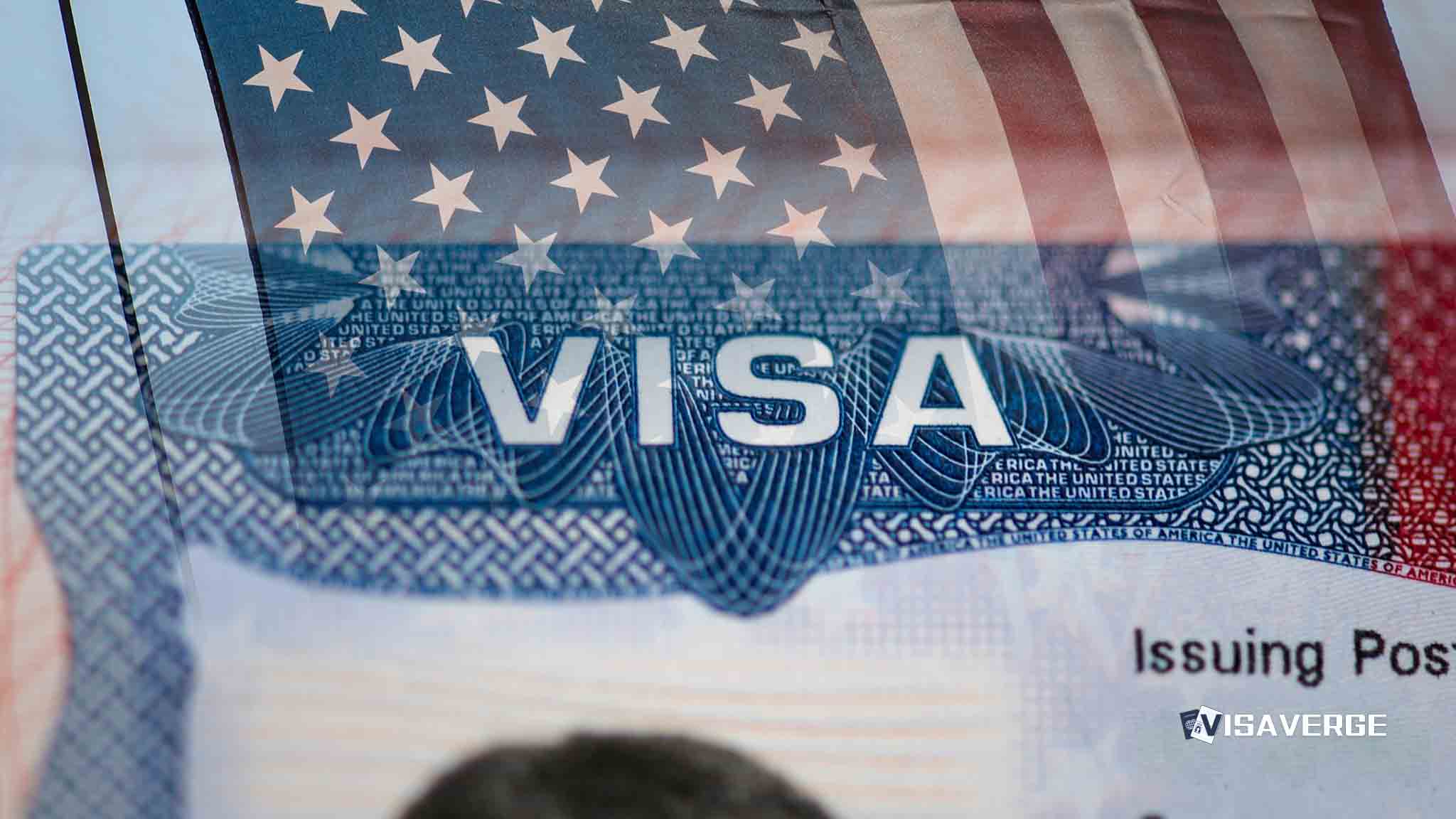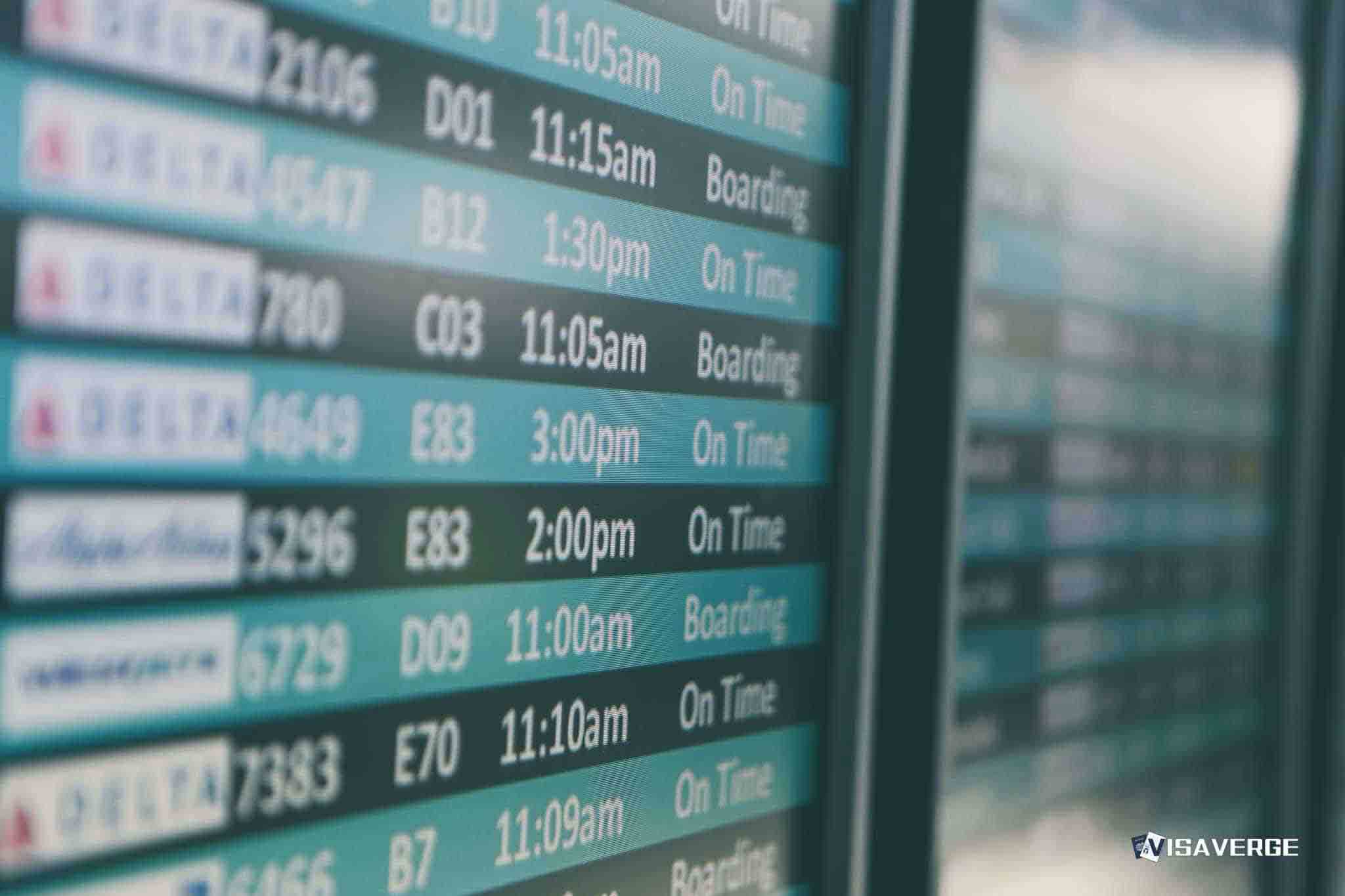Key Takeaways
• Bhutanese undocumented immigrants urged to return before mid-August 2025 to avoid U.S. travel bans and deportations.
• U.S. offers cost-free travel, fines forgiveness, and $1,000 bonuses for voluntary departure registration via CBP Home App.
• Bhutan must act within 60 days to address U.S. concerns on security, visa overstays, and deportation cooperation.
Bhutanese Immigrants in the U.S. Face Urgent Call to Return Amid Threat of Travel Restrictions
On June 22, 2025, Bhutan’s Ministry of Foreign Affairs and External Trade (MoFAET) issued a rare and urgent public notice: all undocumented Bhutanese immigrants living in the United States 🇺🇸 should return home voluntarily. This warning comes as the U.S. government considers imposing new travel restrictions on Bhutan 🇧🇹 and 35 other countries, citing concerns about immigration enforcement, national security, and cooperation with deportation procedures. The situation has quickly become a top concern for Bhutanese families, U.S. officials, and human rights advocates.

Who Is Affected and Why Now?
The U.S. government, under the Trump administration, has taken a tougher stance on immigration in 2025. A leaked memo signed by Secretary of State Marco Rubio sets a 60-day deadline—starting mid-June 2025—for Bhutan and other flagged countries to address U.S. concerns or face entry bans for their citizens. The main reasons for Bhutan’s inclusion are:
- Weak passport and document security
- High rates of visa overstays by Bhutanese nationals
- Limited cooperation with U.S. deportation procedures
- Concerns about terrorism or anti-American rhetoric
Bhutanese immigrants without legal status in the United States 🇺🇸 are now at immediate risk of deportation, travel bans, and losing the chance to visit or live in the U.S. in the future. The Bhutanese government is in high-level talks with U.S. officials, but has also told its citizens to comply with U.S. laws or face serious consequences.
How Many Bhutanese Are in the U.S.?
Officially, about 1,500 Bhutanese are registered with the Bhutanese Embassy in the United States 🇺🇸. However, estimates suggest the real number is much higher—between 4,000 and 5,000. According to the U.S. Yearbook of Immigration Statistics (2023), there are:
- 24,770 Bhutanese refugees in the U.S.
- 1,190 lawful permanent residents from Bhutan between 2014 and 2023
Recent enforcement actions show the seriousness of the situation. In April 2025 alone, U.S. Immigration and Customs Enforcement (ICE) deported at least 16 Bhutanese refugees, with more removals ongoing. From 2021 to 2024, only 51 Bhutanese nationals were caught crossing into the U.S. illegally, but the focus now is on those who have overstayed visas or lost legal status.
What Is the U.S. Government Doing?
The Trump administration is expanding its hardline immigration agenda. The Department of Homeland Security (DHS) is reviewing 36 countries, including Bhutan 🇧🇹, for possible travel bans. Bhutan must submit an action plan within 60 days—by mid-August 2025—to avoid new restrictions.
For undocumented Bhutanese immigrants, the U.S. government is offering a “historic opportunity” for voluntary departure. This program includes:
- Cost-free travel back to Bhutan
- Forgiveness of fines for immigration violations
- A $1,000 exit bonus for those who register through the CBP Home Mobile App
The U.S. Embassy has made it clear: undocumented foreign nationals should leave immediately or face forced removal and possible bans on future entry.
How Does Voluntary Departure Work?
The voluntary departure program is designed to encourage undocumented Bhutanese immigrants to leave the United States 🇺🇸 on their own, rather than being deported. Here’s how it works:
Step 1: Registration
– Undocumented Bhutanese must register for voluntary departure using the CBP Home Mobile App.
– Registration is required to qualify for cost-free travel and the exit bonus.
Step 2: Eligibility
– Applicants must prove they are Bhutanese nationals without lawful U.S. immigration status.
– Those who qualify will have their fines forgiven and receive a $1,000 bonus upon departure.
Step 3: Departure
– Individuals must leave the U.S. within the specified timeframe (before the 60-day deadline ends).
– U.S. agencies may provide financial and logistical support for the journey home.
Step 4: Assistance
– The Bhutanese Ministry of Foreign Affairs and External Trade can offer guidance and support for returnees.
– U.S. officials have set up hotlines and online resources for questions about the process.
What Happens If Bhutan Does Not Comply?
If Bhutan 🇧🇹 fails to meet U.S. demands by mid-August 2025, the consequences could be severe:
- Travel Ban: The U.S. may impose a full or partial travel ban on Bhutanese citizens. This would block new visas for students, tourists, workers, and family members.
- Family Separation: Bhutanese families with members in both countries could be split apart, unable to visit or reunite.
- Education and Business Disruption: Bhutanese students and professionals in the U.S. could lose their legal status or be forced to leave, affecting education and business ties.
- Diplomatic Strain: Relations between the United States 🇺🇸 and Bhutan 🇧🇹 could suffer, making future cooperation more difficult.
Bhutan’s Response and Ongoing Negotiations
Bhutan’s government is taking the situation seriously. Minister for Foreign Affairs and External Trade DN Dhungyel stated, “We are working through appropriate channels to resolve this issue in a timely manner.” High-level talks are ongoing with U.S. officials to avoid a travel ban and protect Bhutanese nationals.
At the same time, Bhutan has publicly urged its undocumented citizens to return home voluntarily. The government is trying to balance the need to cooperate with U.S. authorities while also protecting its people from harsh penalties.
Risks for Bhutanese Returnees
For many Bhutanese immigrants, especially former refugees, returning home is not simple. Some face the risk of statelessness or expulsion upon arrival in Bhutan. In the past, Bhutan has refused to accept certain deportees, leaving them stranded at the Indian border or detained in Nepal.
Human rights groups warn that forced returns could put vulnerable people in danger. The Refugee Council USA (RCUSA) and Stop AAPI Hate have condemned the Trump administration’s use of the Alien Enemies Act and mass deportations, calling for legal protections and an end to blanket travel bans.
Background: The Bhutanese Refugee Crisis
To understand why so many Bhutanese live in the United States 🇺🇸, it’s important to know the history. In the late 1980s and early 1990s, Bhutan expelled tens of thousands of ethnic Nepali Bhutanese, known as Lhotshampa. Many spent decades in refugee camps in Nepal before being resettled in the U.S. and other countries.
Since the early 2000s, over 24,000 Bhutanese refugees have started new lives in the United States 🇺🇸. They have built communities, found jobs, and sent their children to American schools. Now, many face the threat of losing everything if forced to return.
Recent Trends: Tougher U.S. Immigration Policies
The Trump administration’s second term has brought a sharp increase in immigration enforcement. Mass deportations and expanded travel bans have targeted countries seen as uncooperative or security risks. Critics say these policies violate due process and put innocent people at risk.
Bhutan’s inclusion on the travel ban list has surprised many experts. The country is known for its peaceful history and lack of anti-American activity. Some analysts worry that the U.S. is using broad security criteria that punish entire communities for the actions of a few.
Implications for Stakeholders
For Bhutanese Immigrants:
– Immediate Risk: Those without legal status could be deported at any time.
– Loss of Future Opportunities: Deportees may be barred from returning to the U.S. for years, if ever.
– Statelessness: Some returnees may not be accepted by Bhutan and could end up stranded in third countries.
For Families:
– Separation: Families split between the U.S. and Bhutan may not be able to visit or reunite.
– Uncertainty: Many face anxiety about what will happen next and how to plan for the future.
For Students and Workers:
– Interrupted Studies: Bhutanese students in the U.S. could lose their visas and be forced to leave before finishing their education.
– Job Loss: Workers may lose their jobs and have to start over in Bhutan, where opportunities are limited.
For Bhutan:
– Diplomatic Pressure: The government must act quickly to avoid a travel ban and protect its citizens abroad.
– Reintegration Challenges: Bhutan may struggle to support returnees, especially those who have lived abroad for many years.
For the U.S. Government:
– Security Concerns: Officials argue that strong enforcement is needed to protect national security and uphold immigration laws.
– International Relations: The U.S. risks damaging ties with countries like Bhutan if policies are seen as too harsh or unfair.
Multiple Perspectives: Policy, Human Rights, and Diplomacy
U.S. Policy Experts: Many see the Trump administration’s actions as a major escalation in immigration enforcement. Some support the tough stance, while others warn of legal and humanitarian risks.
Human Rights Advocates: Groups like RCUSA and Stop AAPI Hate argue that mass deportations and travel bans violate basic rights. They call for Congress to repeal the Alien Enemies Act and protect vulnerable immigrants.
Diplomatic Analysts: Bhutan’s inclusion on the travel ban list is seen as unusual, given its peaceful record. Some worry that the U.S. is applying security criteria too broadly, affecting innocent people.
What Should Bhutanese Immigrants Do Now?
For Bhutanese immigrants in the United States 🇺🇸, the situation is urgent. Here are practical steps to consider:
- Check Your Status: Make sure you know your current immigration status. If you are undocumented or have overstayed your visa, you are at risk.
- Register for Voluntary Departure: If you decide to return, use the CBP Home Mobile App to register and qualify for cost-free travel and the exit bonus.
- Seek Legal Advice: Talk to an immigration lawyer or trusted community organization for guidance on your options.
- Stay Informed: Follow updates from the Bhutanese Ministry of Foreign Affairs and External Trade and the U.S. Department of Homeland Security.
- Prepare for Departure: If you choose to leave, make arrangements for your travel, finances, and personal belongings.
Official Resources and Contacts
- CBP Home Mobile App: www.dhs.gov/cbphome – For voluntary departure registration and information.
- Bhutanese Ministry of Foreign Affairs and External Trade: For official notifications and assistance.
- U.S. Department of Homeland Security: For updates on immigration enforcement and voluntary departure programs.
For more detailed analysis and ongoing updates, VisaVerge.com reports that Bhutanese immigrants and their families should monitor both U.S. and Bhutanese government announcements closely, as the situation may change quickly.
Looking Ahead: What Comes Next?
Bhutan has until mid-August 2025 to present a plan that satisfies U.S. concerns. If successful, the country may avoid a travel ban and protect its citizens’ rights to travel, study, and work in the United States 🇺🇸. If not, new restrictions could disrupt thousands of lives and strain relations between the two countries.
Diplomatic negotiations are ongoing, but the outcome is uncertain. Bhutanese immigrants, their families, and advocates are watching closely, hoping for a solution that balances security with compassion and respect for human rights.
Key Takeaways and Next Steps
- Bhutanese immigrants without legal status in the U.S. face urgent pressure to return home or risk deportation and travel bans.
- The U.S. government is offering incentives for voluntary departure, but the deadline is fast approaching.
- Bhutan must act quickly to address U.S. concerns or face new restrictions that could affect students, families, and business ties.
- Returnees, especially former refugees, may face serious risks, including statelessness and lack of support.
- All affected individuals should seek legal advice, register for voluntary departure if needed, and stay informed through official channels.
For the latest official information on voluntary departure and immigration enforcement, visit the U.S. Department of Homeland Security’s official website.
The coming weeks will be critical for Bhutanese immigrants in the United States 🇺🇸. With lives and futures at stake, timely action and clear information are more important than ever.
Learn Today
Undocumented Immigrants → Individuals residing without official U.S. immigration status or legal permission to remain in the country.
Travel Ban → A government-imposed restriction preventing citizens of designated countries from entering the United States.
Voluntary Departure → A program allowing eligible immigrants to leave the U.S. on their own to avoid deportation penalties.
CBP Home Mobile App → A mobile application used by U.S. Customs and Border Protection for voluntary departure registration and information.
Deportation → The formal removal of a foreign national from the United States for violating immigration laws.
This Article in a Nutshell
Bhutanese immigrants in the U.S. face urgent pressure to return amid possible travel bans. The U.S. offers incentives for voluntary departure while Bhutan negotiates to avoid restrictions. Risks include deportation, statelessness, and family separation. Legal advice and prompt action via CBP Home App are critical for affected individuals now.
— By VisaVerge.com






